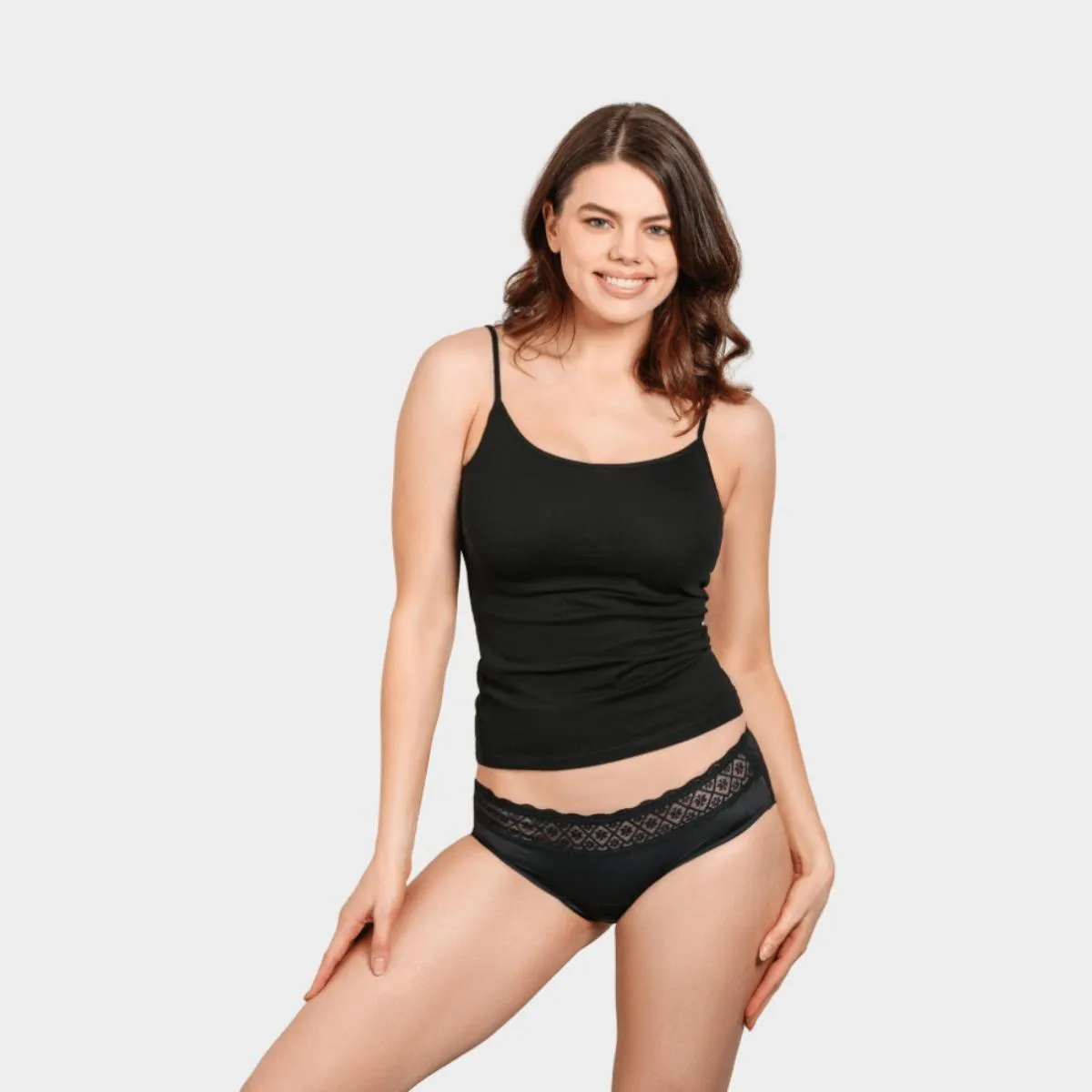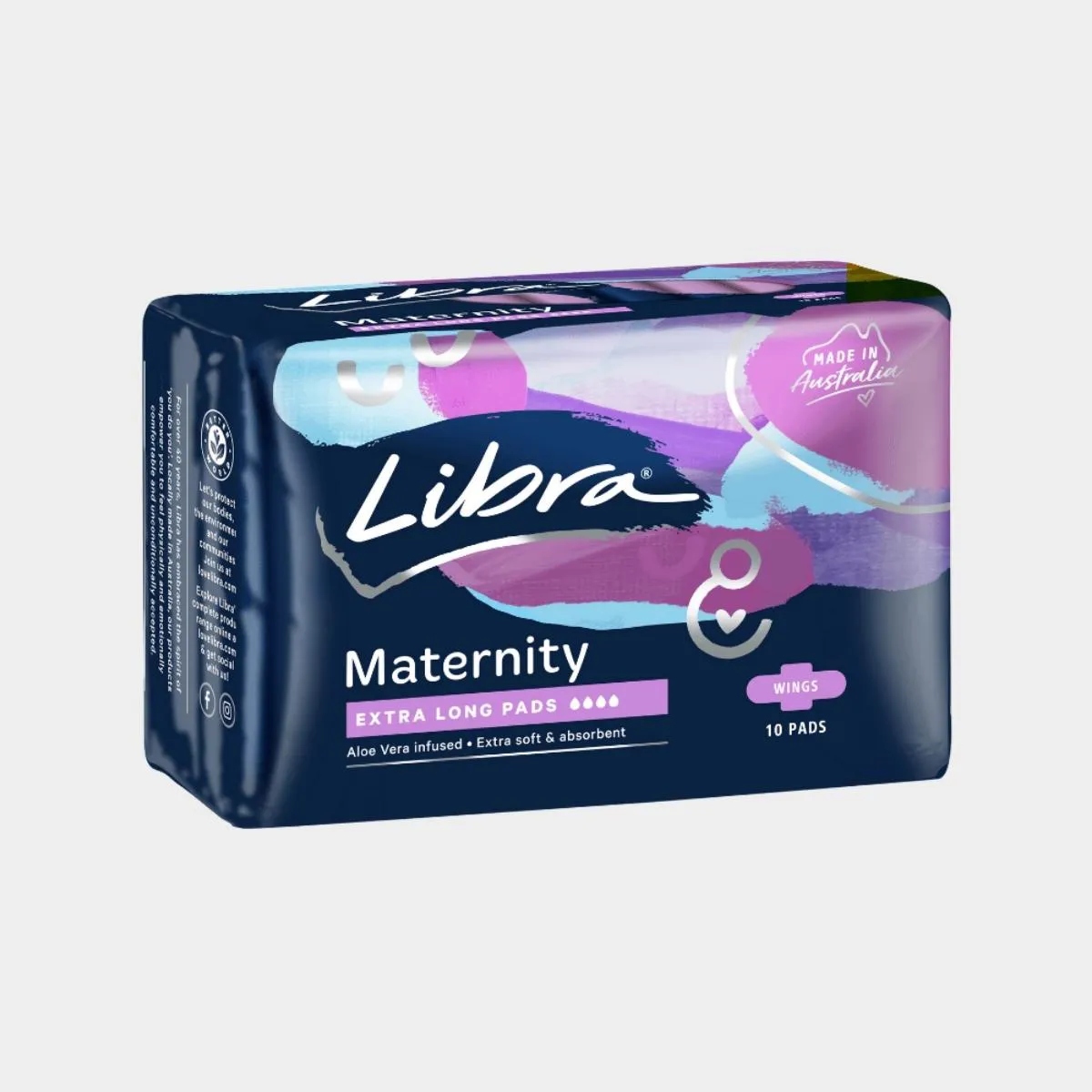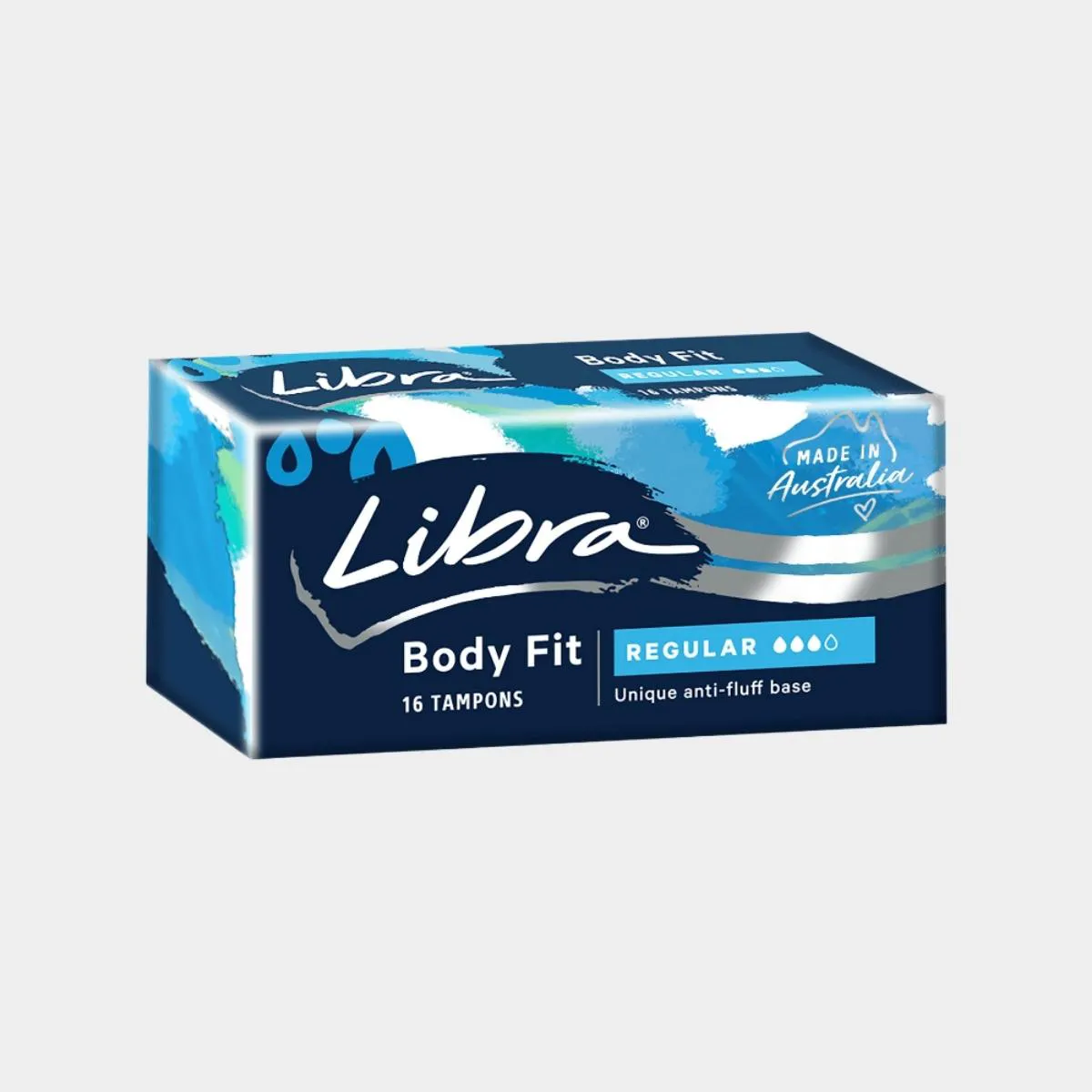Jul 01, 2024
Disability Pride Month With Sharna
Meet Sharna, the incredible individual behind @thebravebodies. She’s courageously navigating chronic illnesses and disabilities while inspiring others by sharing her story. In this candid interview for Disability Pride Month, she opened up about her journey towards self-acceptance, finding empowerment in her differences, and fostering an inclusive community.
Your life & how you’ve handled everything is so inspiring! Tell us about your story
Like most chronically ill women, my story starts with years of symptoms being dismissed by doctors, so naturally, I started to believe that the pain and fatigue were normal.
Growing up, you would find me playing any sport, from netball to swimming and gymnastics. I was a design student at UNSW where I also received a scholarship to study internationally. I went on to graduate with honours and worked three different jobs in both the wedding and photography industry, whilst travelling and keeping up with my hectic social life.
However, behind the scenes, I was still battling the worsening abdominal and joint pain, fatigue and regular fainting. I had to beg doctors to listen to me and had to fight to be heard. I was still being told that my pain isn’t real and that I’m not worth their time. I was conditioned to stay silent, to hide the symptoms, and to push through the pain.
It took me over 7 years to finally receive the correct treatment and a proper diagnosis of a connective tissue disorder called Ehlers Danlos Syndrome and Gastroparesis which affects my digestive system, making it difficult for me to absorb food. Being a private person meant that I became quite good at hiding this side of my life, because for the most part, my chronic illnesses were invisible.
In 2021 I was admitted to the ICU with respiratory failure, after a common cold turned to pneumonia. This caused my other chronic illnesses to flare up, and I lost a significant amount of weight which resulted in requiring a feeding tube to meet my body’s nutritional needs.
Needing to rely on medical devices to keep my body alive, was truly a vulnerable and insecure feeling. It was something I tried to hide and ignore, but this was the first time that my invisible illnesses became visible.
During the following year, I was not able to gain much weight and my symptoms worsened despite the extra nutrition support via the NJ tube. This was the moment my things started to progress. My healthcare teams started to change, and I started receiving proper care. For the first time in my life, I had healthcare professionals who went out of their way to make sure I felt supported, who researched my illnesses and learned how to best help me. They also started discussions around further treatments and supports. I can remember sitting in an appointment with a lump in my throat, trying my hardest to hold back the tears because I truly didn’t believe I was sick enough to deserve any of the help they were suggesting. I had been conditioned by all of the previous dismissive doctors that the pain I was feeling was in my head. But my respiratory issues continued to worsen, with recurrent chest infections requiring further hospital admissions.
This led to a lengthy hospital admission that lasted 450 days. With further respiratory and digestive complications, we trialled multiple forms of enteral and parenteral nutrition including NJ tube, PEG-J tube, J tube and TPN. Unfortunately, the enteral feeds exacerbated my respiratory issues, and the tubes caused further complications. I was also doing twice daily physio to help strengthen my body as the lack of nutrition and extended admission caused my body to become quite deconditioned.
This admission presented me with some of my hardest challenges. My friends were celebrating job promotions and learning to navigate their new careers whilst I was learning how to navigate the healthcare system and trying to comprehend the extent of my illnesses. This was the first time I had a doctor explain the reality of my progressive illness. I was trying to deal with my body being so unwell whilst also trying to comprehend that my future will look a lot different to what I had planned. I also had doctors and medical staff make me question whether I’m worthy of care, which is a terrifying feeling when you’re in such a vulnerable position. Despite the difficult moments, I was lucky enough to be surrounded by some of the most supportive family, friends and healthcare professionals, who went above and beyond to advocate for me and support me at any given moment.
Since being discharged, it’s been so difficult to learn how to live with my body’s current abilities in comparison to the things I was able to do and enjoy years ago. I now get all of my nutrition from TPN, a form of IV nutrition which goes into my veins via a central line on my chest. As much as I wanted to avoid this option, it has been the only thing that has helped me gain weight and give me back some kind of life outside of the hospital. I have also been trying to navigate the world as a wheelchair user, after becoming deconditioned from the multiple recent ICU and hospital admissions. It’s been quite a difficult transition and I’ve always been embarrassed to struggle but I’m starting to realise that there’s no shame in working hard to get to where I need to be.
I still struggle to accept my illnesses and disabilities, but I am learning to be proud of how much I’ve overcome and how I’ve grown in more ways than I’d ever thought possible. My recent successes may not be what I thought I’d be achieving at this age, but that doesn’t make them any less valid.
What does Disability Pride Month mean to you?
Being proud of my disabilities is something I’m still working on, but I have definitely come a long way in accepting my differences and finding my place in this world. When I first got sick, adapting was really difficult. I tried so hard to fit my ‘now disabled body’ into a lifestyle I formed years ago around my ‘abled-body’. I tried to hide my illness and ignore my differences. I didn’t want this to be something that would impact me or my life.
For a long time, I didn’t think that I was sick enough to be considered disabled. My health fluctuates greatly on a day-to-day basis, so I could be curled over in a wheelchair one day and then up and walking around the next day. With the remarks from previous dismissive doctors still replaying in my head, it made it difficult for me to understand that I was dealing with a dynamic disability.
By learning from other people with disabilities, accepting my own disabilities, and adapting my lifestyle to suit my current needs, I realised that people could live a fulfilling life despite their illness or disability. Having disabilities didn’t have to be something that would stop me from being me.
Disability Pride Month isn’t about portraying our disabilities as inspiring and wonderful. It’s about embracing our differences, celebrating our diversity and starting conversations to foster change and inclusivity. People talking about their journey with disabilities is what helped me to become more accepting of myself. Starting these conversations not only helps people with disabilities feel seen but also helps others to understand and accept people’s differences too.
How can others show their support & get involved?
To show support and get involved in Disability Pride Month, people can show, shake, share and shape:
- Show you care: Educate yourself by listening attentively to the experiences and perspectives of people with disabilities. Everyone has something unique and valuable to contribute, so demonstrating empathy and understanding is key.
- Shake your assumptions: Challenge common assumptions and stereotypes about disabilities. For example, don’t assume that someone doesn’t need accessible accommodations just because they don’t use a wheelchair. By shaking off these assumptions, we can foster a more inclusive mindset.
- Share the voice of people living with disabilities: Amplify the voices of individuals with disabilities by sharing their stories, insights, and achievements.
- Shape our future: Take proactive steps to shape a more inclusive future for people living with disabilities. This can involve advocating for accessible infrastructure, promoting inclusive policies, and actively participating in efforts to create a more inclusive society.
By showing care, shaking assumptions, sharing voices, and shaping our future, we can all play a role in celebrating Disability Pride Month and promoting greater acceptance and inclusion for individuals living with disability.
Let’s talk periods! We all experience periods so differently, have you experienced any unique challenges
Living with Gastroparesis causes a lot of nutrition complications and weight loss which can lead to losing your period. When I started getting sick, I rarely got my period and when my illness progressed, my period stopped completely. Most people would tell me I’m lucky - and I totally get it! I don’t miss those pesky cramps, but navigating these issues still has its own set of unique challenges.
We all have our favourite period cramp remedies, what are your go-to’s?
I might not have much experience with period-related cramps, but I still get my fair share of stomach cramps from my illnesses. My go-to cramp remedy is heat! I love a hot shower and I always keep some mini instant hand warmers in my bag in case of emergency cramp situations while I’m out in public or in hospital. (They have been literal lifesavers!) Otherwise, a cosy blanket, a hot water bottle and some trashy tv are always a great distraction on bad pain days.
What’s next for you?
Honestly, this has been a huge question for me lately. I’m still trying to navigate life outside of the hospital with all of the new changes. There are some goals that I was hoping to have accomplished by now, but my health fluctuates dramatically, and my body isn’t quite strong enough yet, which is totally okay - it’s a working progress!
For a whole 450 days, I was a patient. I lost a lot of life opportunities and instead spent a lot of my time staring at a hospital ceiling waiting for someone to tell me that I was well enough, or healthy enough to be discharged, so I could start doing the things I love. While keeping my body healthy is important, I also want to make sure to make time for things I love instead of becoming completely consumed by the idea of trying to “get better”.
I have really enjoyed creating this safe space for people with chronic illness and disability and growing our little community to over 20k followers!! I love illustrating, promoting body positivity, sharing my story and the realities of living with chronic illness and disability. When my illness started to get a bit more serious and I was struggling to accept my own disabilities, it felt quite hypocritical to continue posting the positive messages I was promoting on my page. But I think this battle has helped me realise that emotions can coexist. We can still carry a heavy burden of grief but also be filled with gratitude. Being disabled isn’t about learning to love your body and your situation all of the time - because that is never going to happen. It’s about learning to be comfortable with your differences and knowing that it’s what makes you unique. There is so much power in authenticity and vulnerability.
While I’m working to continue to learn how to embrace my disabilities and empower myself to live a life that is impactful despite my differences, I hope to continue illustrating and growing our little community. Connecting with so many people who are in similar situations and knowing how much of an impact I am making has been so encouraging. It honestly still shocks me that I am able to make a difference in so many people’s lives. When I was struggling to understand my disabilities, I found other disabled creator’s accounts that changed the way I viewed my life. If I am able to use this platform to help just one other person living with disabilities feel less alone and more accepting of their differences, then it gives my pain a purpose.
Articles
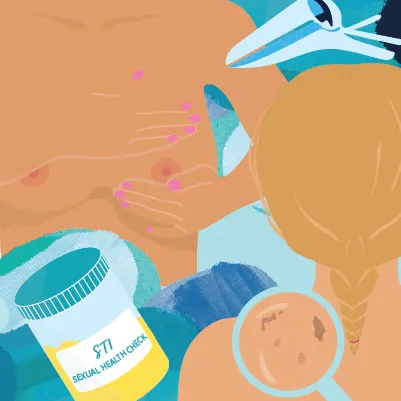
Are you up to date with your health checks?
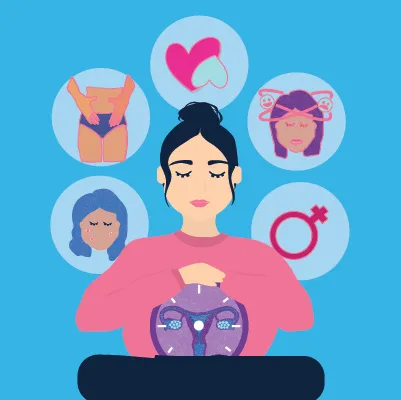
What You Need to Know About Menstrual Cycle Hormones
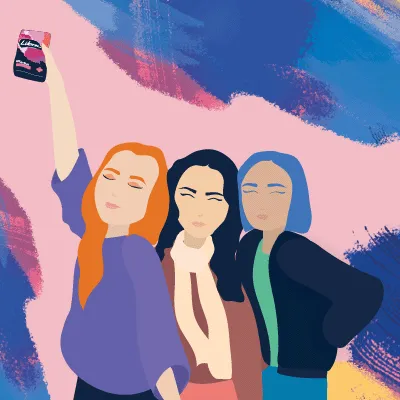
Why Do My Periods Sync with My Friends?
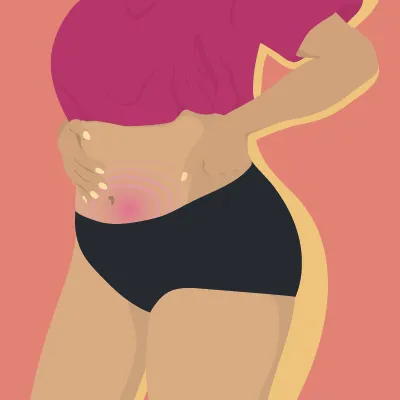
Why am I getting a burning feeling on my period?
